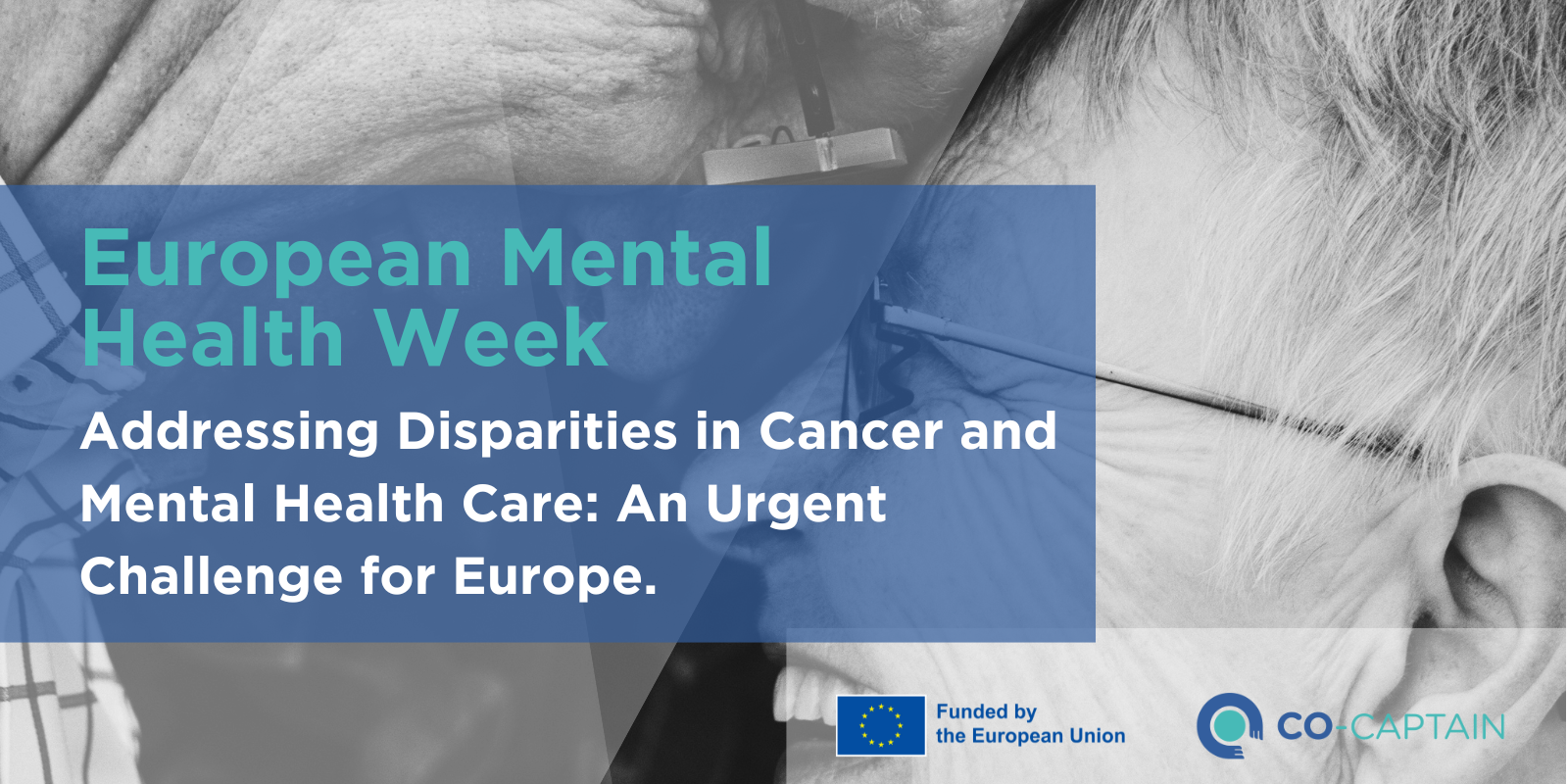Mental health and cancer care are two critical areas of health care that are unfortunately often addressed independently. However, the intersection between these two fields is increasingly evident and requires comprehensive and coordinated attention. In Europe, we face the challenge of addressing disparities in cancer and mental health care to ensure that everyone has access to the care they need.
On the occasion of European Mental Health Week, it is timely to reflect on the importance of addressing mental health needs in a comprehensive manner. This week provides a platform to promote awareness and understanding of mental health, as well as to advocate for policies and services that support the mental wellbeing of Europe’s citizens.
According to the World Health Organisation, people with mental health problems face a significantly higher risk of cancer mortality compared to the general population. This is alarming and highlights the need to address the complex interactions between mental health and physical health.
One initiative that is leading the way in this area is the European CO-CAPTAIN project, coordinated by the Medical University of Vienna. This innovative project aims to overcome inequalities in cancer care for people with mental health problems through patient navigation. By optimising access to primary cancer prevention targeted at known risk factors, CO-CAPTAIN has the potential to reduce the burden and mortality of cancer, while improving the quality of life of people with mental health problems.
In addition, the recent publication of the manifesto by Mental Health Europe, a partner in the project, on the occasion of the 2024 European elections, highlights the importance of addressing mental health disparities across Europe. The manifesto underlines the need to promote and protect the rights of people with mental health problems and to ensure accessible and recovery-oriented mental health services in the community.
It is essential to recognise that mental health and cancer control are complex problems that require comprehensive and coordinated solutions. This includes addressing the social determinants of health, promoting prevention and equitable access to care, and eliminating mental health-related stigma and discrimination.
Ultimately, we must come together as a society, along with political and health leaders, to effectively address these challenges. Only through a collaborative and patient-centred approach can we achieve a healthier and more equitable future in Europe.







